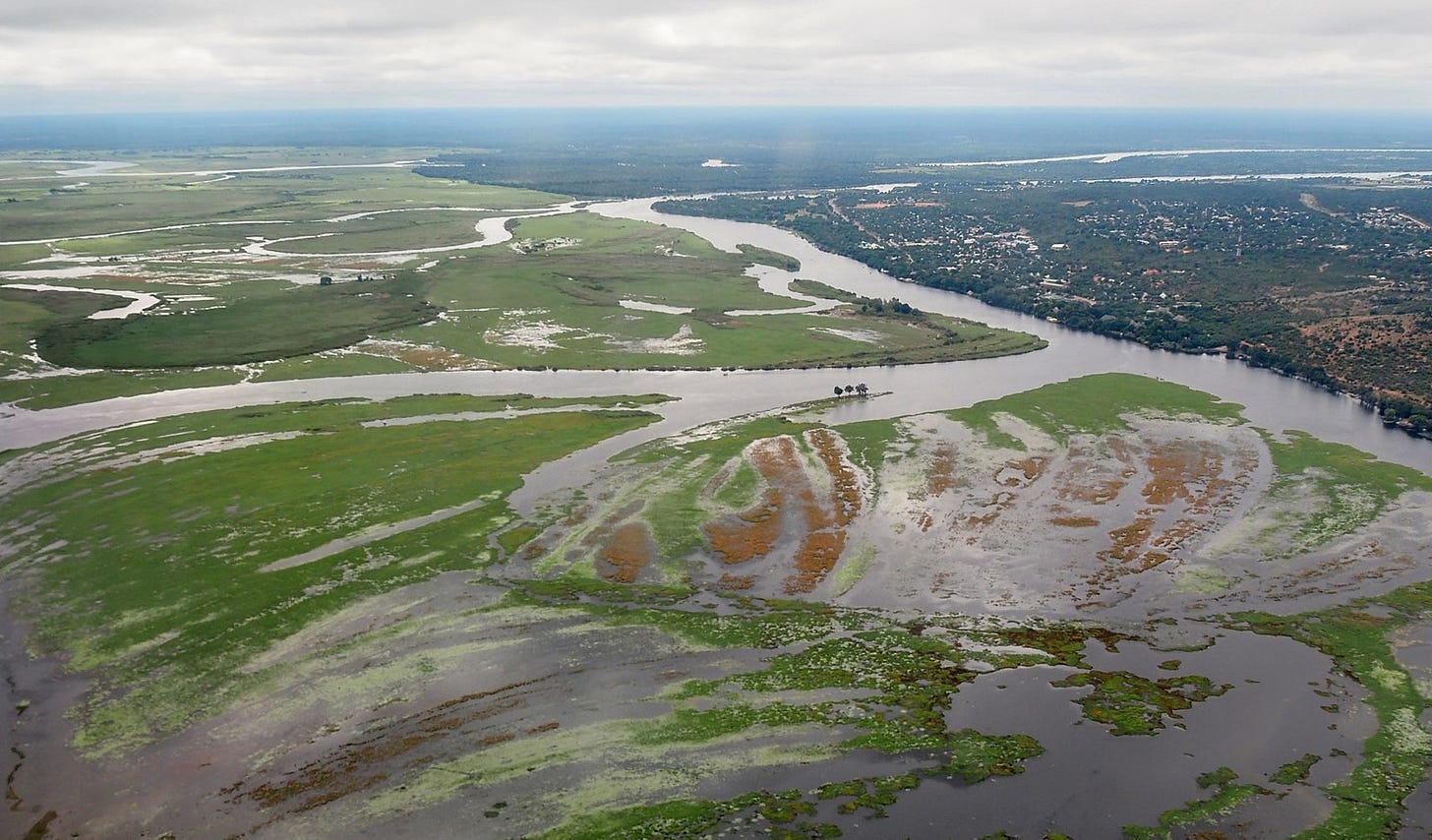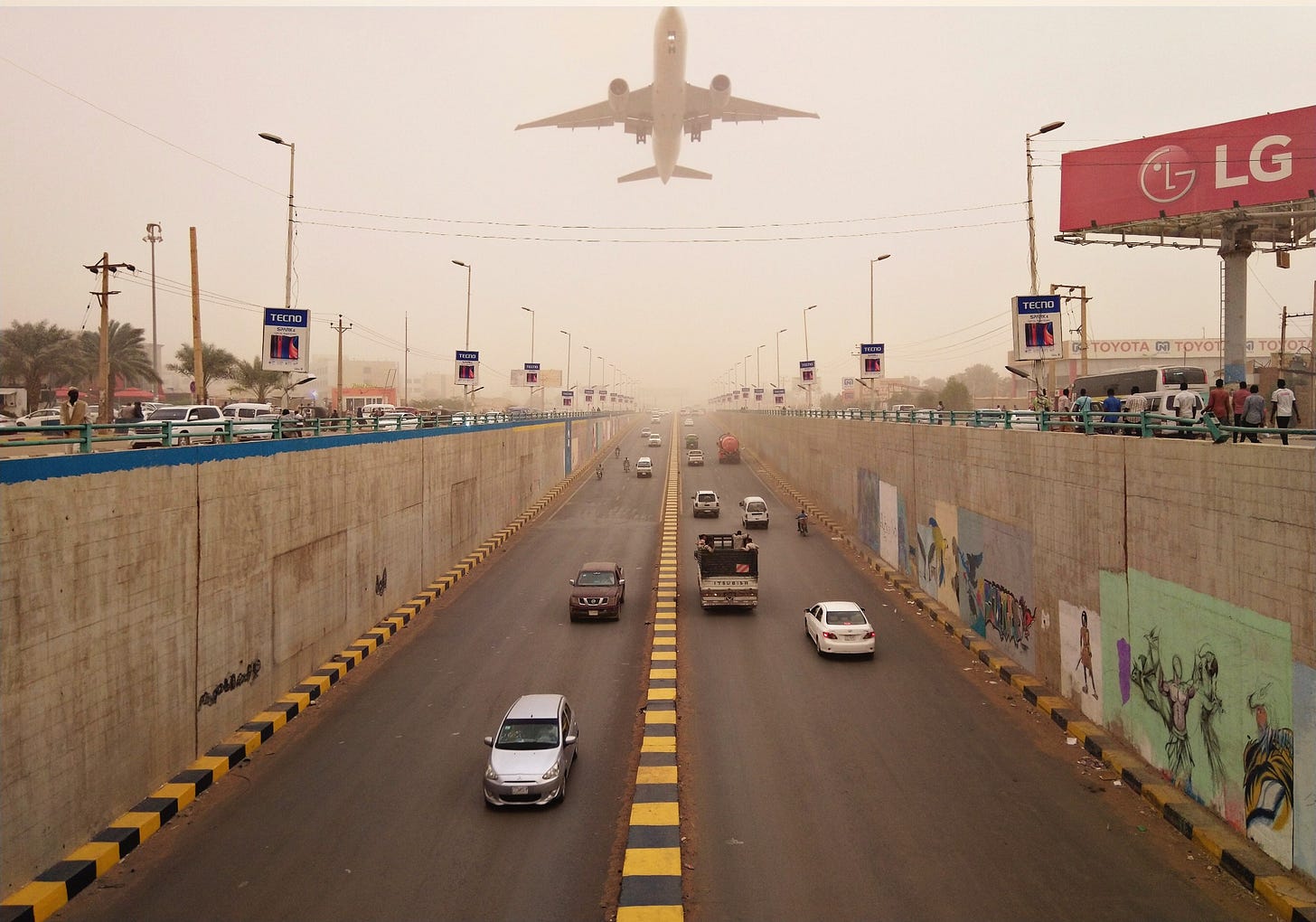🔅 Can Africans Break AI's White Savior Complex?, Malawi's Scorching Heatwave
Plus, Amazon in South Africa, Botswana's Drought Plan
Photo of the day
Khartoum, Sudan
Markets:
🟢 Nigerian SE: 67,326.12 (+0.43%)
🔴 Johannesburg SE: 73,146.75 (-0.41%)
— Ghana SE: 3,145.09 (0.00)
🔴 Nairobi SE: 93.26 (-0.10%)
🟢 US S&P 500: 4,390.63 (+0.39%)
🟢 Shanghai Composite: 3,083.50 (+0.32%)
Inflation | Some countries are feeling the pinch of inflation, but not Senegal and Ghana. These two West African nations are sitting pretty with low inflation rates, giving them some breathing room to keep interest rates steady. Meanwhile, Namibia and Rwanda are seeing higher inflation rates, so they may need to make some adjustments.
*Data accurate as of the close of markets across the continent
Brief & Bright: Africa's Top Five
How Can AI Break the White Savior Stereotype?

Even artificial intelligence can't escape the white saviour complex. In a recent study, researchers tried to use AI to create images of Black African doctors helping white suffering children, but the results were not exactly what they hoped for. Despite specific requests, the AI almost always depicted the children as Black and the doctors as White. However, it had no problem showing African doctors with African children; it was the combined depiction of Black doctors and white children that seemed to stump the AI. Case in point, take a look at the image above created by this platform’s AI generator when we typed in the prompt: “Black doctor treating white children” — none of the images generated included white children. AI is trained on existing photos and images, so, unsurprisingly, it struggles with portraying an Africa that does not conform to existing stereotypes. So, how do we break this cycle? Some say it's up to people from the Global South to flood databases with their own images -- of African doctors saving the day. Let's give AI a much-needed update.
Malawi's Scorching Heatwave

The heat is on in Malawi, where temperatures reached a record-breaking 43C (that's 109F for those of you who prefer Fahrenheit). The government has warned people to stay out of the sun, stay hydrated, and lay off the booze and caffeine. Some schools even had to evacuate students to the shade of playground trees. Forget about playing football without taking regular water breaks—Malawi's Super League players were not trying to get heatstroke. Experts say climate change is to blame for the sweltering weather, and it's not just a one-time thing—global temperatures in 2023 have been the hottest on record. Temperatures are almost 20C higher than they should be at this time of year (typically 25C), and the Department of Climate Change and Meteorological Services is warning of a "prolonged period of hot and uncomfortable weather" throughout October.
Amazon Takes on South Africa's Online Shopping Scene

Amazon is making its way to South Africa in 2024. This is big news for a market currently dominated by Naspers' TakeAlot. With the rise of online shopping during the pandemic, Amazon’s arrival could mean significant changes for South African sellers and entrepreneurs. The company is already inviting independent sellers to register their businesses on its marketplace website.
Botswana's Bold Plan to Beat Drought

Botswana plans to transfer 495 million cubic meters of water from the Chobe-Zambezi River through 1,250km of pipelines to its parched southern region. They want to do it in a public-private partnership model, so if you're a potential bidder, mark your calendars for the Zoom meeting set for tomorrow. The goal is to have it all up and running by 2027. This project is crucial for ending the country's chronic droughts, which have been exacerbated by global warming. The African Development Bank is on board, too, hoping the project will boost Botswana's food and food processing industries. The country relies heavily on food imports due to its lack of arable land.
Nigeria Burns Millions of Dollars Worth of Pangolin Scales

In a bold move to discourage illegal trafficking, Nigeria has publicly destroyed four tonnes of seized pangolin scales. These shy and critically endangered animals are in high demand for their scales in traditional Chinese medicine, even though there’s no proof that they do anything. Nigeria has become a significant transit hub for African pangolin scales and other wildlife products to Asia. Two people were jailed in May for illegally possessing pangolin scales and elephant tusks. In 2022 alone, Nigeria customs officials seized 1,613 tonnes of pangolin scales and arrested 14 people. Pangolin populations have declined by up to 80% in some parts of Africa. Seizures of pangolin scales, mainly sourced in Africa, increased tenfold between 2014 and 2018.
Food for Thought
"There are no shortcuts to the top of the palm tree."
— Cameroonian Proverb




